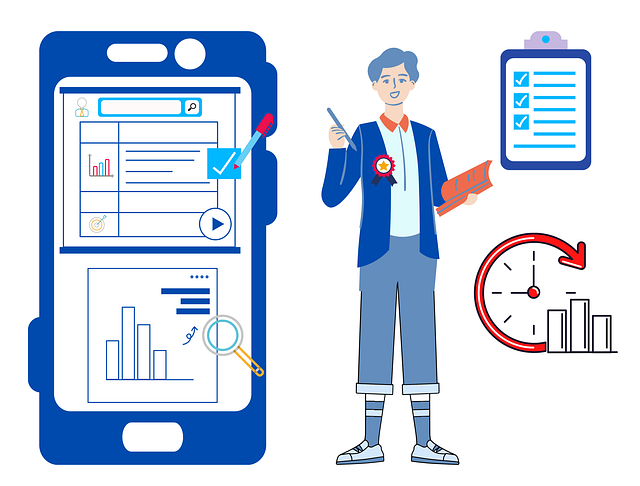AI systems for scheduling in car repair businesses revolutionize operations by predicting service demands from historical data, automating appointment booking, and optimizing staffing. These tools enhance customer satisfaction, adapt to unexpected events, and enable mechanics to focus on complex repairs, boosting overall efficiency and profitability. Additionally, predictive maintenance using AI forecasts vehicle issues from sensor data, minimizing breakdowns and extending vehicle lifespans through proactive maintenance.
In today’s digital era, vehicle repair shops are embracing AI coaching strategies to enhance operational efficiency and customer satisfaction. This article explores three key areas where artificial intelligence is making waves: optimizing scheduling with AI systems, automating administrative tasks, and implementing predictive maintenance for proactive repairs. By leveraging AI systems for scheduling in car repair businesses, shops can streamline operations, reduce wait times, and provide a more seamless experience for their customers.
- Optimizing Scheduling with AI Systems
- Automating Administrative Tasks for Efficiency
- Predictive Maintenance: AI's Role in Proactive Repairs
Optimizing Scheduling with AI Systems

In today’s digital era, AI systems for scheduling in car repair businesses are revolutionizing operations. These intelligent tools can analyze historical data to predict service demands, enabling workshops to optimize their staffing and equipment allocation. By understanding peak hours and common issues, AI algorithms can automate appointment scheduling, reducing wait times and enhancing customer satisfaction.
Furthermore, these systems integrate seamlessly with other shop management software, ensuring a streamlined workflow. They can also adapt to dynamic circumstances like unexpected surges in demand or staff shortages, dynamically adjusting schedules for maximum efficiency. This proactive approach not only improves operational efficiency but also allows mechanics to focus on intricate repairs, fostering a more productive and profitable environment.
Automating Administrative Tasks for Efficiency

In today’s digital era, AI systems are transforming car repair businesses by automating administrative tasks that were once time-consuming and prone to human error. These intelligent tools can efficiently manage appointments, track inventory, and process billing, allowing shop managers to focus on core operations. By leveraging AI for scheduling in car repair businesses, shops can optimize their workflows, reduce wait times, and enhance overall customer satisfaction.
For instance, AI algorithms can analyze historical data to predict maintenance needs and schedule services proactively. This proactive approach not only improves efficiency but also fosters a culture of preventive maintenance, leading to longer vehicle lifespans and happier clients. Automating these tasks liberates staff from monotonous duties, enabling them to dedicate more time to diagnosing complex issues and providing high-quality repairs.
Predictive Maintenance: AI's Role in Proactive Repairs

Predictive maintenance is a game-changer for vehicle repair shops, and AI plays a pivotal role in this proactive approach. By analyzing vast amounts of data from sensors in vehicles, AI systems can predict potential issues before they become major repairs. This innovative strategy involves using machine learning algorithms to identify patterns and anomalies in vehicle performance data, enabling mechanics to schedule maintenance at the optimal time.
AI-powered scheduling for car repair businesses enhances efficiency by minimizing unexpected breakdowns and costly emergency repairs. It allows shops to optimize their operations, reduce downtime, and provide customers with more accurate estimates. With AI systems, maintaining vehicles becomes a proactive process rather than a reactive one, ensuring that cars stay on the road longer and in better condition.
AI coaching strategies, such as optimizing scheduling with efficient systems, automating administrative tasks, and implementing predictive maintenance, are transforming vehicle repair shops. By leveraging these advanced technologies, car repair businesses can enhance productivity, reduce costs, and provide more proactive services to their customers. Adopting AI systems for scheduling in car repair businesses is no longer a future trend but a necessary step towards staying competitive and meeting the evolving demands of the automotive industry.
